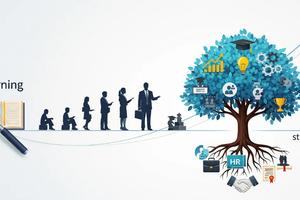How to Choose an Executive Coach | A Complete Comprehensive Guide

Key Takeaways
Essential insights to remember
Executive Coaching Delivers Exceptional ROI Across All Leadership Levels Companies see an average 788% return on investment from executive coaching, with individual productivity improving by 88% and team performance increasing by 67%. This makes coaching one of the highest-impact professional development investments, benefiting everyone from first-time managers to C-suite executives.
Coaching is Fundamentally Different from Mentoring, Training, and Consulting Unlike other development methods, executive coaching focuses on unlocking your potential through self-discovery rather than providing solutions or sharing experiences. Coaches ask powerful questions and challenge your thinking to help you find your own answers, creating lasting behavioral change that typically spans 3-12 months.
Credentials and Industry Experience Matter More Than Cost The most effective coaches have ICF certification (PCC or MCC level), 5+ years of experience, and relevant industry knowledge. While top-tier coaches charge $300-1,000+ per hour, the focus should be on value and results rather than price alone, as the long-term career impact justifies the investment.
Virtual Coaching Has Made Quality Development Globally Accessible Virtual executive coaching shows equivalent effectiveness to in-person sessions, with 92% client satisfaction rates and higher program completion rates. This technology advancement means you can access world-class coaches regardless of geographic location while maintaining scheduling flexibility and reducing costs.
Success Requires Clear Goals, Cultural Fit, and Organizational Support Effective coaching depends on defining specific, measurable objectives upfront, finding a coach whose style matches your personality and learning preferences, and having organizational support for applying new skills. The best results come from viewing coaching as ongoing development rather than a one-time fix.
Introduction – Why Executive Coaching Matters
If you've ever felt stuck in your career, overwhelmed by leadership challenges, or unsure how to navigate your next big step, you're not alone. Research shows that 73% of executives report feeling unprepared for their leadership roles, yet only 23% invest in professional coaching development.
Even the most seasoned executives sometimes need a trusted guide to help them see the bigger picture — and that's exactly where executive coaching comes in. In today's competitive business world, the leaders who grow fastest are often those who invest in themselves. They understand that leadership isn't just about skills; it's about mindset, clarity, and consistent improvement.
Similar to how professionals seek guidance in business consulting for strategic decisions, executive coaching provides personalized development for leadership excellence.
The Rise of Executive Coaching in Modern Business
In the last decade, executive coaching has transformed from a luxury perk for C-suite executives to a strategic necessity for professionals at all levels. The global executive coaching market is valued at $4.2 billion and growing at 6.2% annually, according to the International Coach Federation (ICF).
From Fortune 500 companies to ambitious startups, organizations worldwide are investing in coaching to:
- Sharpen leadership capabilities
- Improve decision-making processes
- Create cultures of accountability and growth
- Reduce executive turnover (which costs companies an average of $2.7 million per departure)
Quick Look at the Benefits for Leaders and Teams
An effective executive coach can help you achieve measurable improvements in:
Personal Leadership Development:
- Increase self-awareness by 89% (ICF Global Study, 2024)
- Develop stronger communication skills that improve team engagement by 67%
- Boost confidence in decision-making with 95% of coaching clients reporting improved confidence
- Handle conflict more effectively through enhanced emotional intelligence
- Achieve personal and organizational goals 43% faster than uncoached leaders
These benefits extend beyond individual growth, similar to how effective communication strategies for nurse leaders impact entire healthcare teams.
What Is Executive Coaching?
Defining Executive Coaching
Executive coaching is a structured, goal-oriented partnership where a professional coach works one-on-one with leaders to enhance their performance, leadership skills, and overall effectiveness. Unlike generic training programs, executive coaching is:
- Personalized to your specific challenges and goals
- Confidential and built on trust
- Action-oriented with measurable outcomes
- Future-focused on sustainable growth
Think of it like having a personal trainer for your leadership muscles. You already have the raw talent — the coach helps you shape it, strengthen it, and apply it strategically.
How Executive Coaching Differs from Other Development Methods
Many people confuse executive coaching with mentoring or consulting, but they serve different purposes:
MethodFocusApproachDurationExecutive CoachingUnlocking your potential through self-discoveryAsks powerful questions, challenges thinking3-12 monthsMentoringSharing experience and wisdomProvides advice based on personal journeyOngoing relationshipConsultingSolving specific business problemsDelivers solutions and strategiesProject-basedTrainingTeaching specific skillsStructured curriculum and instructionDays to weeks
Understanding these distinctions helps you choose the right development approach, similar to how you might choose between different business finance strategies based on your company's specific needs.
Why Leaders at All Levels Can Benefit
Executive coaching isn't just for C-suite executives. Research from Harvard Business Review shows that coaching provides significant ROI across all leadership levels:
- First-time managers: 78% improvement in team performance
- Mid-level executives: 65% increase in promotion rates within 18 months
- Senior leaders: 84% report improved strategic thinking capabilities
- Entrepreneurs: 71% achieve business goals faster with coaching support
Whether you're managing a small team or running an entire organization, the principles that help with improving concentration in children strategies can also apply to focusing your leadership development efforts.
Key Qualities to Look for in an Executive Coach
Finding the right coach is like hiring a key executive for your company — the fit matters more than credentials alone. Here's what to prioritize:
1. Proven Experience and Track Record
Look for coaches with quantifiable results. The best coaches can provide:
- Specific client success stories (while maintaining confidentiality)
- Measurable outcomes from previous engagements
- Industry recognition or awards
- Client retention rates above 85%
- Testimonials that highlight concrete improvements
2. Industry Knowledge and Specialization
Sector-specific experience accelerates results. A coach familiar with your industry understands:
- Unique leadership challenges in your field
- Industry-specific communication styles
- Regulatory or competitive pressures
- Cultural nuances and expectations
For example, a tech industry coach understands fast-paced product cycles, while a healthcare coach knows the complexities similar to those addressed in travel nurse career transitions.
3. Professional Credentials and Certifications
Look for coaches with recognized credentials:
- International Coach Federation (ICF) certification (PCC or MCC level)
- Advanced degrees in psychology, business, or organizational development
- Specialized training in leadership assessment tools (360-feedback, EQi 2.0, etc.)
- Continuing education commitment and ongoing professional development
4. Strong Communication and Listening Skills
Great coaches listen more than they talk. During initial conversations, assess whether they:
- Ask thought-provoking questions that challenge your thinking
- Demonstrate active listening without rushing to solutions
- Communicate complex concepts clearly and simply
- Show genuine curiosity about your goals and challenges
5. Confidentiality and Trustworthiness
Trust is non-negotiable in coaching relationships. Ensure your coach:
- Has clear confidentiality agreements and policies
- Maintains professional boundaries consistently
- Shows integrity in all interactions
- Provides references you can verify
This level of trust is as crucial as the confidentiality required when dealing with sensitive legal issues in business.
The Role of Executive Coaching Services in Leadership Growth
Evidence-Based Coaching Methodologies
The most effective executive coaching programs use research-backed approaches:
Neuroscience-Based Coaching:
- Leverages brain science to accelerate learning and behavior change
- Uses techniques that create lasting neural pathway changes
- Focuses on building new habits through repetition and reinforcement
Strengths-Based Development:
- Identifies and amplifies existing strengths rather than fixing weaknesses
- Uses tools like CliftonStrengths or VIA Character Strengths assessments
- Results in 73% higher engagement levels among coached leaders
Systems Thinking Approach:
- Considers the broader organizational context and stakeholder relationships
- Addresses leadership challenges holistically rather than in isolation
- Creates sustainable change that impacts entire teams and departments
Specialized Coaching Programs
Different coaching programs serve different needs:
Executive Presence Coaching:
- Develops gravitas, communication impact, and authentic leadership style
- Improves presentation skills and public speaking confidence
- Enhances personal brand and professional reputation
Transition Coaching:
- Supports leaders moving into new roles or organizations
- Accelerates onboarding and reduces time-to-effectiveness
- Addresses the challenges similar to those in utilising international student services when adapting to new environments
Performance Coaching:
- Focuses on achieving specific business results and KPIs
- Improves decision-making speed and quality
- Enhances team leadership and delegation skills
Long-Term Professional Development Impact
Sustainable coaching creates lasting change:
- 94% of coaching clients maintain behavioral improvements 12+ months after program completion
- Coached leaders are 2.3x more likely to be promoted within two years
- Organizations with coaching cultures show 51% higher revenue growth than competitors
Steps to Choosing the Right Executive Coach
1. Identify Your Specific Goals and Challenges
Before researching coaches, get crystal clear on your objectives:
Professional Goals:
- Leadership skill development (communication, decision-making, strategic thinking)
- Career advancement preparation
- Team performance improvement
- Organizational culture transformation
Personal Growth Areas:
- Confidence and executive presence
- Work-life integration
- Stress management and resilience
- Emotional intelligence development
Measurable Outcomes:
- Define success metrics (360-feedback scores, team engagement, revenue targets)
- Set realistic timelines for achievement
- Identify accountability measures
2. Research and Evaluate Potential Coaches
Use multiple sources to find qualified coaches:
Professional Directories:
- International Coach Federation (ICF) directory
- Center for Executive Coaching database
- Industry-specific coaching associations
- LinkedIn professional networks
Referral Sources:
- HR professionals and talent development teams
- Industry peers and leadership networks
- Business consulting firms with coaching partnerships
- Alumni networks and professional associations
3. Conduct Thorough Due Diligence
Evaluate coaches systematically:
Credential Verification:
- Confirm ICF certification status
- Verify educational background and specialized training
- Check professional references and client testimonials
- Review any published articles, books, or thought leadership
Experience Assessment:
- Years of coaching experience (minimum 5+ years recommended)
- Number of clients served and industries covered
- Specific expertise in your area of need
- Cultural competency and diversity awareness
4. Schedule Discovery Conversations
Most reputable coaches offer complimentary consultation sessions:
What to Discuss:
- Your specific goals and challenges
- Their coaching methodology and approach
- Relevant experience with similar clients
- Expected timeline and investment required
What to Assess:
- Communication style and personality fit
- Ability to ask insightful questions
- Professional presence and credibility
- Genuine interest in your success
5. Evaluate Chemistry and Cultural Fit
Coaching effectiveness depends heavily on relationship quality:
Key Compatibility Factors:
- Communication style preferences (direct vs. collaborative)
- Personality match and energy levels
- Values alignment and integrity
- Mutual respect and trust development
This relationship aspect is as important as finding the right fit when choosing durable reliable washing machines for years of trouble-free laundry — you want a long-term partnership that delivers consistent results.
6. Review Methodology and Tools
Understand their coaching framework:
Assessment Tools:
- 360-degree feedback instruments
- Personality assessments (MBTI, DISC, Enneagram)
- Leadership style inventories
- Emotional intelligence evaluations
Coaching Process:
- Session frequency and duration
- Progress tracking and accountability measures
- Homework assignments and skill practice
- Integration with workplace application
7. Discuss Logistics and Investment
Clarify practical details upfront:
Program Structure:
- Total program duration (typically 6-12 months)
- Session frequency (usually bi-weekly or monthly)
- Session format (in-person, virtual, or hybrid)
- Additional support between sessions
Investment and ROI:
- Total program cost and payment terms
- Expected return on investment timeline
- Success guarantees or program adjustments
- Organizational billing and approval processes
Common Mistakes to Avoid When Choosing an Executive Coach
1. Choosing Based on Price Alone
The cheapest option is rarely the best value. Consider:
- Total cost of poor leadership (turnover, missed opportunities, team disengagement)
- Opportunity cost of delayed development
- Quality of experience and expertise provided
- Long-term career impact of coaching investment
2. Ignoring Industry Relevance and Context
Generic coaching may miss critical nuances:
- Industry-specific leadership challenges
- Cultural and regulatory considerations
- Stakeholder relationship dynamics
- Communication styles and expectations
3. Overlooking Coach-Client Methodology Alignment
Mismatched approaches lead to poor results:
- Some clients prefer structured, directive coaching
- Others thrive with exploratory, client-led approaches
- Learning style preferences (visual, auditory, kinesthetic)
- Feedback delivery preferences (direct vs. gentle)
4. Failing to Set Clear Success Metrics
Without measurable goals, progress is unclear:
- Define specific behavioral changes desired
- Establish timeline expectations for improvement
- Create accountability measures and check-in processes
- Agree on success indicators upfront
5. Insufficient Organizational Alignment
Coaching works best with organizational support:
- Secure manager and HR buy-in for coaching goals
- Align coaching objectives with performance expectations
- Create safe spaces for practicing new behaviors
- Integrate coaching insights with career development plans
How to Measure the Success of Executive Coaching
Setting SMART Coaching Goals
Effective coaching requires specific, measurable objectives:
Leadership Competency Goals:
- Improve 360-feedback scores by 20% within 6 months
- Increase team engagement scores from 6.5 to 8.0 (out of 10)
- Reduce decision-making time by 30% for complex issues
- Achieve 95% direct report satisfaction with communication style
Business Impact Goals:
- Increase team productivity by 15% within one quarter
- Improve customer satisfaction scores by 10 points
- Reduce employee turnover in your division by 25%
- Successfully complete organizational restructuring with 90% employee retention
Tracking Leadership Improvements
Use multiple data sources to measure progress:
Quantitative Measures:
- 360-degree feedback assessments (before, during, and after coaching)
- Employee engagement survey results
- Performance review ratings and goal achievement
- Business metrics and KPI improvements
Qualitative Indicators:
- Peer feedback and stakeholder interviews
- Self-reflection and journal insights
- Behavioral observation and skill demonstration
- Team dynamics and collaboration improvements
Progress Tracking Tools:
- Monthly coaching session notes and action items
- Weekly self-assessment scorecards
- Quarterly stakeholder feedback sessions
- Annual leadership development reviews
Long-Term Impact on Your Organization
The best coaching creates lasting organizational change:
Individual Impact (0-6 months):
- Increased self-awareness and emotional intelligence
- Improved communication and conflict resolution skills
- Enhanced decision-making confidence and speed
- Better work-life integration and stress management
Team Impact (6-12 months):
- Higher team engagement and motivation levels
- Improved collaboration and trust within teams
- More effective delegation and empowerment practices
- Reduced team conflicts and increased productivity
Organizational Impact (12+ months):
- Stronger leadership pipeline and succession planning
- Enhanced organizational culture and values alignment
- Improved financial performance and business results
- Greater innovation and adaptability to change
This systemic improvement is similar to how addressing financial stress can positively impact multiple areas of personal and professional life.
Integrating Executive Coaching Into Your Career Development
Making Coaching a Continuous Learning Habit
The most successful leaders view coaching as ongoing development:
Regular Coaching Maintenance:
- Schedule quarterly "tune-up" sessions with your coach
- Participate in peer coaching groups or mastermind programs
- Attend annual leadership development conferences and workshops
- Engage in regular 360-feedback assessments
Self-Coaching Skills Development:
- Learn to ask yourself powerful coaching questions
- Practice reflective journaling and goal setting
- Develop mindfulness and self-awareness practices
- Create personal accountability systems
Leveraging Coaching Principles for Team Development
Extend coaching benefits throughout your organization:
Coaching Leadership Style:
- Ask more questions rather than providing immediate answers
- Focus on developing others' problem-solving capabilities
- Provide regular feedback and recognition for growth efforts
- Create psychological safety for learning and experimentation
Team Coaching Implementation:
- Facilitate team coaching sessions on shared goals
- Use coaching techniques in one-on-one meetings with direct reports
- Implement peer coaching programs within your department
- Integrate coaching questions into team meetings and decision-making processes
Creating a Coaching Culture
Successful leaders help build coaching cultures:
- Model continuous learning and development behaviors
- Share coaching insights and learnings with peers (while maintaining confidentiality)
- Advocate for coaching investment in organizational development budgets
- Mentor other leaders in selecting and working with coaches effectively
Return on Investment: Executive Coaching Economics
Quantifying Coaching ROI
Research consistently shows strong financial returns from executive coaching:
Individual ROI Metrics:
- Average coaching ROI: 788% (Manchester Inc. study)
- Productivity improvement: 88% on average
- Quality improvement: 84% on average
- Organizational strength improvement: 67% on average
Organizational Benefits:
- 51% higher revenue for companies with strong coaching cultures
- 125% return on coaching investment within first year
- $7.90 return for every $1 invested in coaching programs
- 61% improvement in business performance metrics
Cost-Benefit Analysis Framework
Calculate the true value of coaching investment:
Coaching Investment Costs:
- Coach fees (typically $200-500 per hour for executive coaching)
- Time investment (2-4 hours monthly for sessions and homework)
- Opportunity cost of focused development time
- Assessment tools and program materials
Quantifiable Benefits:
- Avoided turnover costs ($75,000-$2.7M per prevented executive departure)
- Increased productivity value (15-25% improvement in performance)
- Faster promotion timeline (average 18-month acceleration)
- Improved team performance (10-30% productivity gains)
Intangible Benefits:
- Enhanced job satisfaction and engagement
- Improved work-life integration and stress management
- Stronger professional reputation and network
- Greater confidence and leadership presence
Technology and Virtual Executive Coaching
The Rise of Digital Coaching Platforms
Technology has transformed coaching accessibility and effectiveness:
Virtual Coaching Benefits:
- Geographic flexibility - access to global coaching talent
- Schedule convenience - easier to fit sessions into busy executive calendars
- Cost effectiveness - reduced travel and venue expenses
- Consistency - maintained coaching relationships during disruptions
Digital Coaching Tools:
- Video conferencing platforms with recording capabilities
- Progress tracking dashboards and goal management systems
- 360-feedback collection and reporting tools
- Mobile apps for accountability and skill practice
Hybrid Coaching Models
Many coaches now offer flexible delivery options:
Blended Approaches:
- In-person intensive sessions combined with virtual check-ins
- Group coaching workshops supplemented by individual sessions
- Digital assessment tools integrated with face-to-face discussions
- Online learning modules paired with personalized coaching
Effectiveness Research:
- Virtual coaching shows equivalent effectiveness to in-person coaching
- 92% of clients report satisfaction with virtual coaching experiences
- Higher completion rates for virtual programs due to convenience factors
Frequently Asked Questions About Executive Coaching
What is the difference between executive coaching and leadership coaching?
Executive coaching typically focuses on senior-level leaders and C-suite executives, emphasizing strategic thinking, organizational impact, and high-stakes decision-making. Leadership coaching can apply to leaders at any level and covers broader leadership skill development.
Both approaches share similar methodologies but differ in:
- Scope and complexity of challenges addressed
- Organizational impact and stakeholder considerations
- Investment level and program intensity
- Business acumen required from the coach
How long does executive coaching typically take?
Most executive coaching engagements last 6-12 months, with sessions occurring bi-weekly or monthly. The duration depends on:
- Complexity of goals - simple skill development vs. comprehensive leadership transformation
- Organizational context - stable environment vs. major change initiatives
- Individual learning pace - some leaders implement changes faster than others
- Available time commitment - busy executives may need longer timelines
Intensive programs may run 3-6 months with weekly sessions, while ongoing development coaching can continue for years with quarterly touchpoints.
What credentials should I look for in an executive coach?
Essential credentials include:
Professional Certification:
- International Coach Federation (ICF) PCC or MCC certification
- Center for Executive Coaching certification
- Specialized coaching school graduation (Georgetown, Columbia, etc.)
Educational Background:
- Advanced degree in psychology, business, or organizational development
- MBA or equivalent business education for executive-level coaching
- Specialized training in leadership assessment tools
Experience Requirements:
- Minimum 5+ years of coaching experience
- 500+ coaching hours with executive-level clients
- Demonstrated results and client testimonials
- Ongoing professional development and supervision
How much does executive coaching cost?
Executive coaching investment varies significantly:
Hourly Rates:
- New coaches: $150-$300 per hour
- Experienced coaches: $300-$500 per hour
- Top-tier executive coaches: $500-$1,000+ per hour
Program Packages:
- 6-month programs: $5,000-$15,000
- 12-month engagements: $10,000-$30,000
- Intensive executive programs: $15,000-$50,000+
Factors affecting cost:
- Coach experience and reputation
- Program intensity and duration
- Assessment tools and materials included
- Geographic location and market rates
Remember, the ROI typically justifies the investment, with most coaching programs generating 5-10x returns.
Can executive coaching be done virtually?
Yes, virtual executive coaching is highly effective and increasingly popular. Research shows:
- Equivalent outcomes compared to in-person coaching
- Higher program completion rates due to convenience
- Greater scheduling flexibility for busy executives
- Access to global coaching talent regardless of location
Virtual coaching success factors:
- Reliable technology and high-quality video/audio setup
- Dedicated, private space for confidential conversations
- Strong relationship-building skills from the coach
- Clear communication protocols and session structure
Many executives prefer virtual coaching for its efficiency and convenience, while others benefit from hybrid models combining virtual and in-person sessions.
What ROI can I expect from executive coaching?
Executive coaching consistently delivers strong returns:
Individual Performance:
- 88% productivity improvement on average
- 70% improvement in work performance
- 86% of companies report positive ROI from coaching
Career Advancement:
- Coached executives are 2.3x more likely to be promoted
- Average salary increase of 25% within 2 years post-coaching
- Enhanced leadership reputation and expanded network
Organizational Impact:
- Team performance improves by 67% on average
- Employee engagement increases by 51%
- Business results improve by 61% in coached leaders' areas
Financial Returns:
- Average ROI of 788% according to Manchester Inc. study
- $7.90 return for every $1 invested in coaching
- Avoided costs from prevented turnover and improved decisions
How do I know if executive coaching is right for me?
Executive coaching may be ideal if you:
Career Situations:
- Recently promoted to a senior leadership role
- Preparing for executive-level advancement
- Leading through significant organizational change
- Managing increasingly complex stakeholder relationships
Development Needs:
- Want to accelerate leadership skill development
- Need to improve specific competencies (communication, decision-making, strategic thinking)
- Seek to enhance executive presence and influence
- Desire to build stronger, more effective teams
Personal Readiness:
- Open to feedback and willing to change behaviors
- Committed to investing time and energy in development
- Value confidential, personalized learning approaches
- Ready to challenge existing assumptions and comfort zones
Organizational Support:
- Have manager and HR support for coaching investment
- Work in a culture that values leadership development
- Can apply learnings in your current role
- Have clear business goals that coaching can support
Conclusion – Your Next Step Towards Executive Leadership Excellence
Choosing the right executive coach can be a career-defining decision that accelerates your leadership development by years, not months. By understanding your specific goals, conducting thorough research, and finding a coach whose expertise and style resonate with your needs, you can unlock leadership potential that drives both personal success and organizational results.
The most successful executives invest in themselves continuously. Whether you choose a specialized service or explore other reputable options, remember that coaching is an investment in your future with ROI that can last a lifetime.
Key takeaways for your coaching journey:
- Define clear, measurable goals before beginning your search
- Prioritize experience, credentials, and cultural fit over cost alone
- Leverage multiple evaluation methods including discovery sessions and reference checks
- Commit fully to the coaching process for maximum benefit
- Integrate coaching learnings into your daily leadership practice
Just as professionals benefit from business consulting for strategic guidance, executive coaching provides the personalized development that transforms good leaders into exceptional ones.
Ready to begin your coaching journey? Start by clarifying your leadership goals and researching coaches who specialize in your development areas. The investment you make today in your leadership capabilities will compound throughout your career, benefiting not only you but every team and organization you lead.
For more insights on professional development and leadership strategies, explore our comprehensive guides on business consulting and effective communication strategies.
Sources and References:
- International Coach Federation (ICF) Global Coaching Study 2024
- Harvard Business Review Leadership Development Research
- Manchester Inc. Executive Coaching ROI Study
- Center for Executive Coaching Industry Reports
- Organizational Psychology and Business Performance Studies





